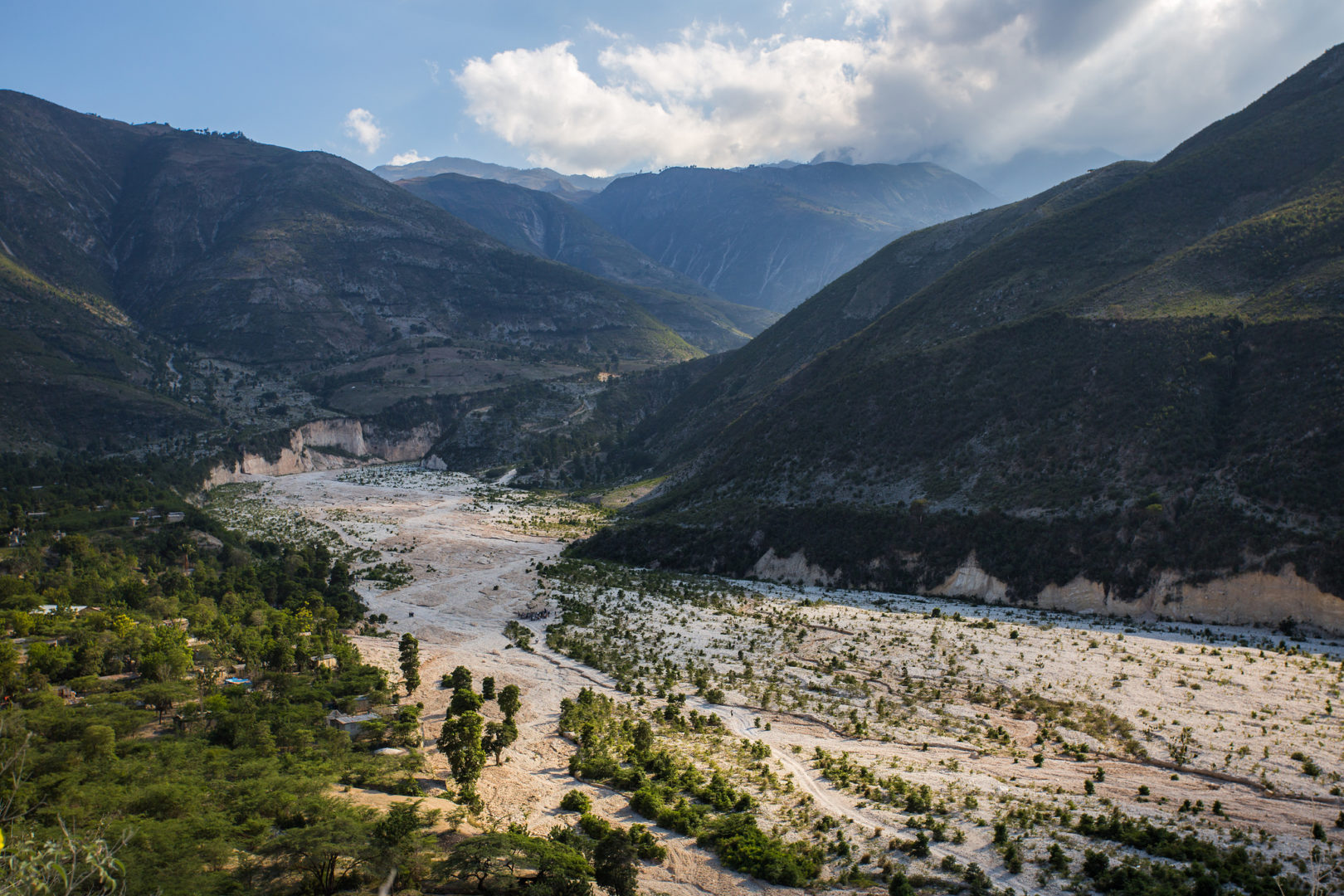When you live off the land, trees are critical.
In order to care for those affected by poverty, it’s important to understand what poverty really looks like. You may envision an overcrowded urban slum. Globally, however, 85 percent of the world’s poor live in rural settings and rely on agriculture to survive.
When things are going well, farming can produce enough food for people to feed their families and a surplus to sell for a sufficient income. Trees restore land by anchoring topsoil, increasing organic matter, and helping the soil absorb water. They also contribute to healthy water cycles by pulling water from the ground to the air. Roots allow water to infiltrate soil and refill aquifers. Habitats for wildlife are created as trees provide homes, food, and shade.
Environmental damage disrupts this process. Every year, the planet loses 50,000 square miles of forest—about 50 football fields each minute. Without these trees, soil deteriorates—erosion is dramatically accelerated and farmers are no longer able to produce enough food.

Deforestation threatens the environment and vulnerable families.
Deforestation is a cruel process, having its most devastating impact on the most vulnerable populations. Farmers around the world have to work harder and harder to produce less and less.
There are many causes for deforestation, including logging, grazing, and commercial agriculture. One of the saddest causes, however, is the fact that many subsistence farmers contribute to the removal of trees out of desperation.
Many farmers understand that trees are important for the long-term health of their land, but when faced with the immediate needs of their families, they must take down trees for a quick profit. Some people will harvest trees to turn into charcoal to quickly earn cash. In other places, forest areas are cleared and burned to be used as extra land for farming.
Eventually, these areas lose so many trees that soil and water are left unprotected.

Living in a watershed affected by deforestation made it difficult for Kamuno to provide enough food for all his children.
It’s a brutal cycle of poverty.
Some of the immediate effects of deforestation are food insecurity and hunger. Families begin skipping meals. Kamuno in the Democratic Republic of the Congo notes that some days, his children would only have cassava leaves to eat. Over time, this can cause stunted growth and malnutrition.
Parents will take their children out of school for additional labor, or sometimes simply because school fees are too high. This brings the threat of poverty to a future generation. Families suffer when parents migrate to cities or other countries to find labor. Once in a city, these populations are particularly vulnerable to dangers like forced labor or sex trafficking.
In addition to all the physical threats, this takes a spiritual toll on a community. Khamsee in Thailand knows the despair that comes with being unable to put enough food on the table for his children. He hopes nobody has to experience this feeling.

Khamsee no longer faces the desperation of poverty after engaging in reforestation and microfinance activities.
We can reverse this cycle!
Today, Khamsee is able to grow enough food to feed his family. Kamuno has seen his children start eating more, healthier food. In Mexico, parents abandon their plan to migrate to the United States after seeing their communities change.
Plant With Purpose plants trees in deforested areas. These areas include the hills in Northern Thailand, the border region of Haiti and the Dominican Republic, and areas surrounding Mount Kilimanjaro. Efforts have restored soil fertility. Farmers now grow more crops and earn more.
Plant With Purpose doesn’t just plant trees, but provides sustainable agriculture training. Farmers can now see a way out of the tension between caring for the environment and feeding their families. While the world continues to lose its forest cover, in the areas where we work vegetation is on the rise.
To date, Plant With Purpose has planted over 28 million trees, and that number continues to climb. Compassionate individuals help plant those trees through their constant support. To fund the planting of more trees, become a Purpose Partner!


















I am touched by the goals of Plant With Purpose. You are making a real difference in the lives of those who need hope. I want to learn more.
Thank you Terez! Please explore our site and reach out with any questions.
Taylor Swift is a slayyyyyyyyyyyyyyy.
I love this content!! I am using it for a presentation in my science class for deforestation and this article is in my sources of work.